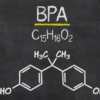Common drug treatment for chronic high blood pressure and heart failure may increase the risk of kidney damage, based on a new study by the University of Virginia.
As first published online in JCI Insight, the study looked at kidney cells known as renin cells. The hormone renin is used by the body to regulate blood pressure. However, the renin cells may also lead to a build-up of smooth muscle cells, which thicken the kidney’s blood vessels. resulting in subsequent kidney damage.
The effects of ACE inhibitors, often used as long-term drug interventions for high blood pressure and other cardiovascular conditions, lead to similar effect of the kidney’s vessels.
“The present studies show that deletion of renin or inhibition of the RAS in mice and humans leads to concentric thickening of the intrarenal arteries and arterioles,” according to the study’s authors.
“The findings of this study are not only fundamental from a basic science standpoint but also relevant from a medical perspective. We found that long-term pharmacological inhibition of the RAS induces arteriolar hypertrophy not only in mice but also in humans,” the authors concluded in their study.
The authors of the study caution against refrainment from the use of ACE inhibitors and point to the necessity of future research to better comprehend the long-term effects on the kidney derived from the drug intervention.


